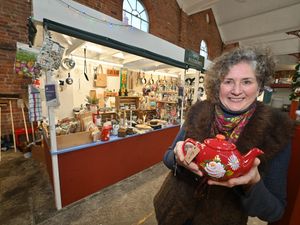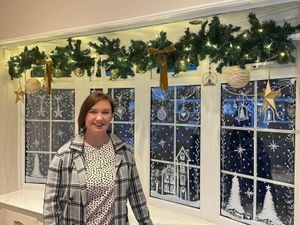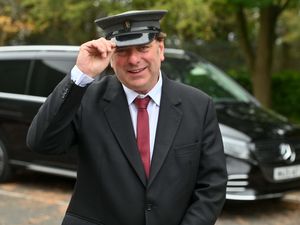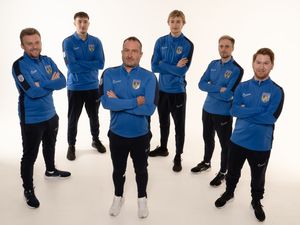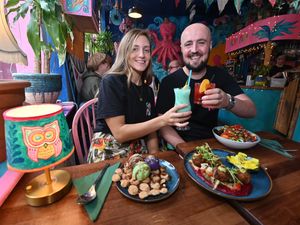Bear is running wild with the stars for a new TV challenge
Bear Grylls needs little introduction. For many, he is synonymous with survival. With Man vs. Wild. With a daring confrontation of the elements, a frail(ish) human body pitted against the might of Mother Nature.

The British adventurer, author and television presenter has criss-crossed the furthest reaches of the globe, from the arid stretches of the Sahara Desert to the verdant jungle of the Amazon Rainforest and the bone-rattling climes of the Arctic Circle. He’s accomplished feats most of us would wince at, let alone complete – and always with his characteristic cheerful disposition, willingness to give things a go, and pure, unadulterated love of the wild.
He’s scaled the summit of Mount Everest (at the time the youngest Brit to do so, at 23); sheltered inside the carcass of a camel; plunged into icy -40 degree water in a pair of swimming trunks and fed former US President Barack Obama raw salmon on a trip through the Alaskan wilderness. And all while creating Bafta and Emmy awarding-winning programmes along the way.
One of those series is his NatGeo programme Running Wild, where he takes celebrities on expeditions in trying terrain, imparting survival skills en-route.
“For me, it really came alive when I started to be able to take people who had never experienced anything like this before into the wild,” the 49-year-old says.
“They might be movie stars or sports stars, but essentially, at the end of the day, they’re rookies to the wild and there’s a powerful dynamic when you’ve got to trust each other, face some fears, some obstacles and challenges, and you’ve got to do it side-by-side.
“Sometimes you’re going to struggle, you’re going to feel cold and hungry, but at the end, there’s the light in their eyes that money can’t buy – no drug, no amount of fame or money gives you that. You’ve got to earn it through mud, blood, sweat and tears. And I love that dynamic. I love seeing how the wild lights people up.”
It’s a medicine Grylls would prescribe for all of us.
“Why is it that you can take one of the most famous men or women on the planet, who has everything, and yet, build a little campfire together and dry your socks out and you get a smile that no amount of super yachts are going to give you? It’s something that’s primal, isn’t it? It’s in us.”
Many of us, particularly city-dwellers, are disconnected from nature. Grylls believes it’s important – whoever you are, wherever you live – to make a conscious effort to seek the outdoors, be it a stroll in a local park or climbing a mountain.
“The real star of the show is the wild,” he continues. “That’s the one that people come for, that’s what they want. The wild does my job for me. I can chat to them and look after them and guide them a little bit – but the wild is the one that lights them up.”
The eighth season of Running Wild with Bear Grylls: The Challenge sees the likes of actor Benedict Cumberbatch, pop star Rita Ora and tennis pro Roger Federer take a healthy dose of Grylls’ medicine as they battle it out in the big outdoors.
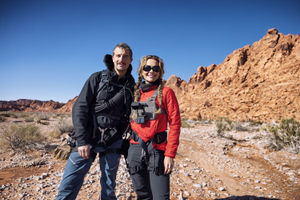
We see them scaling cliffs, hunting pigeons and jumping out of planes, but the most striking moments are often those at camp – a tarpaulin overhead, a flickering fire, dark land stretching away on every side – when they speak candidly to Grylls about their personal struggles, triumphs and sadnesses.
Cumberbatch tears up about his grandfather; comedian, podcaster and actor Russell Brand discusses his past substance abuse and marriage to pop star Katy Perry; Ora reflects on her Kosovan heritage.
Both the wild, and something about Grylls himself, seem to prise open the lid on these individuals so often talked of, but so little known.
This is part of the show’s joy – and its broad appeal. It’s wholly different to most of the celebrities’ media appearances, when they’re promote films on chat shows. “Running Wild is about them and their life,” Grylls says. It’s an opportunity for them to tell their story – “the struggles and the triumphs”.
And many of the guests have the greatest experiences of their lives – still more become firm friends of Grylls. Since he put actor Bradley Cooper through his paces in the unforgiving Wyoming wilderness, they’ve become good friends. “It’s a testament to when you work hard together, you create strong bonds,” muses Grylls.
The programme’s first deaf participant, CODA’s Oscar-winning Troy Kotsur is another Grylls convert. His adventure in the Scottish Highlands this season has him descending waterfalls and clambering down from one of the region’s highest peaks across eight miles of steep terrain studded with sheer cliffs and treacherous rivers.
“We’ve kept in touch,” shares Grylls. “A friend saw him at an awards thing the other day and he said, ‘I’m standing with a guy called Troy who’s making the sign of, basically, ‘Bear, you’re an a**hole’ in sign-language’, which was always our joke because I was always making him go down stuff and jump in stuff.”
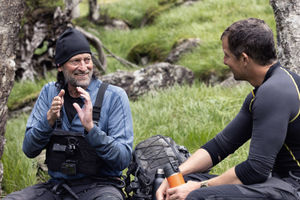
In terms of the spontaneity of each episode, much of it is figured out on the go. “We have a rough idea of where we’re going to start a journey, where we’re going to end… It’s like an elastic band: you can stretch and shrink the journey according to how people are doing. And we have to do that a lot.”
Grylls’ crew and camera operators are crucial. “You can’t do this sort of show without super talented adventure teams,” he says. “They’re always the unsung heroes for me.
“It’s fast and it goes a million miles per hour but I always finish the journeys really wired and sort of happy, and it’s a great feeling between the crew as well, like wow, we did that. And that’s amplified times 100 for the guests.”
And on how we might all channel a bit of that Grylls grit: “That adventure spirit is a state of mind. It’s about how we live our life. It covers jungles, deserts, mountains, but it also covers everyday life when we’re back home – how we approach everything; relationships, business, our goals and aspirations.
“Everyone at the end of the day – doesn’t matter who they are, how famous, successful, rich, powerful – has their own struggles and fears. But there’s often character traits that run through these people and a big part of it is a willingness to do the uncomfortable, to dig deep and to never give up.”

